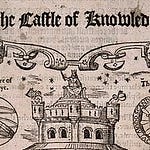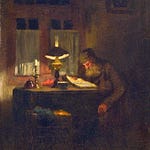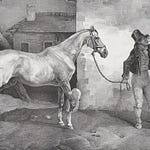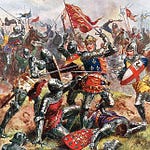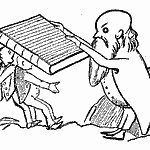To my mind, of all the English poets of the nineteenth century, Gerard Manley Hopkins, priest, scholar, philosopher, teacher, and poet, was the most amiable. He was a brilliant man whose brilliance somehow went unnoticed. He was often in frail health, though he was a tireless worker, and his superiors did not consider that perhaps his tirelessness could be put to better use — better for the church, and less of a strain on his constitution. But no, they sent him to Dublin to teach, where he was far from his friends and his family. Hopkins was a shy man, too, and his poetry was so original, so unusual, he knew that he could not expect many people to understand what he was doing. Besides, the rules of his Jesuit order kept him from publishing his poems, and he was an obedient man: he did not want to draw attention to himself. But this self-denial put him in a bind. A poet needs an audience, not for applause but for appreciation, commentary, advice, and criticism. It’s no wonder that Hopkins was often pitched into despondency, and a feeling that his considerable talents — for poetry, obviously, but also for music, which he loved, and art, not to mention investigating the philosophy of John Duns Scotus, the “Subtle Doctor” — were going for naught.
And that brings us to our Poem of the Week, “Peace.” Hopkins isn’t begging for a break in his work. He’s longing for that tranquility of order that Augustine defined as peace, a tranquility that for Hopkins would mean better and more fruitful work, the joy of accomplishment not just for himself but for God, and the confidence that the gifts God had endowed him with would flourish.
The key turn in the poem comes in the second stanza, where Hopkins acknowledges that there is a great gift that comes in place of peace: actually, comes as the preparation for peace. It is Patience. We aren’t fond of that virtue. I doubt any people anywhere has ever been fond of it. Americans, clearing the land, dredging harbors, digging canals, and laying a railroad from coast to coast? That’s what they were doing during Hopkins’ life. Or the British, with their navy and their far-flung empire, and their immensely active and grime-filled industrial cities, like Manchester and Leeds? Were the Romans patient? The Aztecs? The Iroquois? But if you do want peace, Hopkins suggests, you must embrace the gift God gives as its forerunner. You must be patient. And when peace finally comes, that Dove, the Holy Spirit, he comes not to be still, but “to brood and sit” — to bring life.
When will you ever, Peace, wild wooddove, shy wings shut, Your round me roaming end, and under be my boughs? When, when, Peace, will you, Peace? I'll not play hypocrite To own my heart: I yield you do come sometimes; but That piecemeal peace is poor peace. What pure peace allows Alarms of wars, the daunting wars, the death of it? O surely, reaving Peace, my Lord should leave in lieu Some good! And so he does leave Patience exquisite, That plumes to Peace thereafter. And when Peace here does house He comes with work to do, he does not come to coo, He comes to brood and sit.






